Keywords: Transition
There are more than 200 results, only the first 200 are displayed here.
-

RELIGION
Two days after his election, the communications team of General Congregation 36 sat down with Father General Arturo Sosa to discuss his life and thought. The conversation introduces the new Superior General in a way that is more personal, to Jesuits and the wider Ignatian family around the world.
READ MORE
-
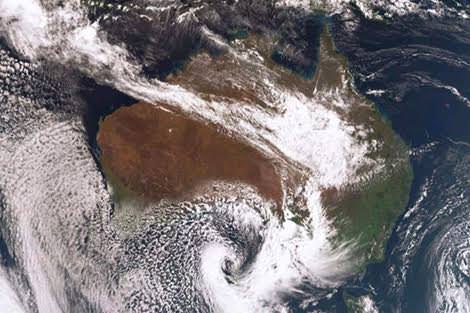
ENVIRONMENT
- Greg Foyster
- 21 October 2016
10 Comments
On 28 September an extreme storm lashed South Australia and the entire state lost power. How could this have happened? It's a question that has occupied the country for the last three weeks as politicians and commentators have peddled their unqualified opinions in an escalating culture war about the role of renewable energy. No one really knew what had happened until Wednesday this week, when the AEMO released its updated report. Even now, there are more questions than answers.
READ MORE 
-

ARTS AND CULTURE
- Barry Gittins
- 13 October 2016
1 Comment
I attempted at one stage to lodge snippets of William Blake's Songs of Innocence and of Experience into the minds of our children. Emily complained that 'symmetry' didn't really rhyme with 'hand or eye'; Ben was and is more into dragons than tigers. The question later pondered of Blake's tiger 'Did He smile His work to see? Did He who made the lamb make thee?' regularly confronts me, as my wife semi-mourns and I embrace the maturing process that is taking our children towards adulthood.
READ MORE 
-
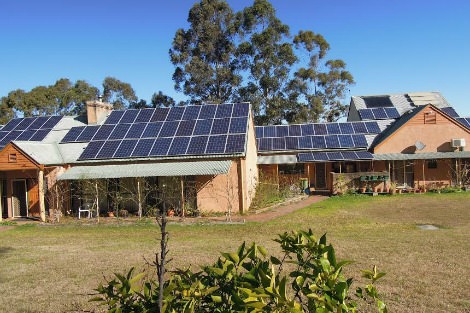
ENVIRONMENT
- Thea Ormerod
- 09 September 2016
10 Comments
With the grip of climate change tightening, few seem to understand the urgency of the crisis. This is why the announcement of over 3500 churches in the UK switching to clean power is so significant. At last, a solution presented by religious communities that matches the scale of the problem. They are providing the kind of leadership for the needed transition to an ecologically sustainable future. Unfortunately, one reason why it is so exciting is that we're nowhere near this in Australia.
READ MORE 
-
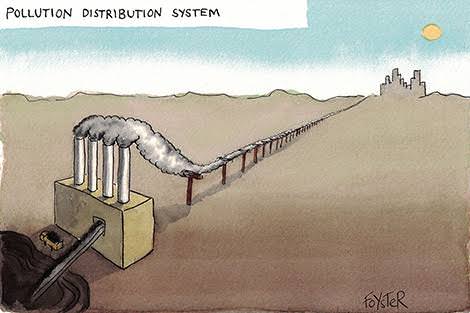
ENVIRONMENT
- Greg Foyster
- 26 August 2016
8 Comments
On 7 July, South Australia experienced a cold snap. As residents turned on their heaters, the still and cloudy conditions meant wind and solar power couldn't contribute much to meeting electricity demand. The last coal plant had closed a few months before, pushed out of the market by renewable energy. As if on cue, the spot electricity price spiked. Instead of a lesson about the danger of too much wind power, it's about the danger of too much market power in the hands of a few big players.
READ MORE 
-
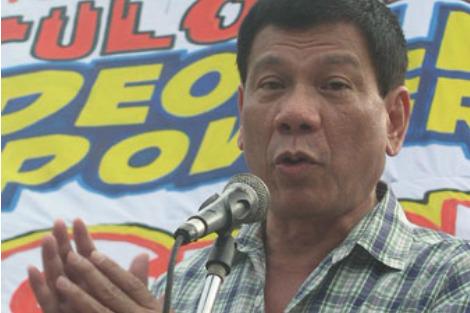
INTERNATIONAL
- Fatima Measham
- 18 August 2016
13 Comments
I fret more than ever for friends and family in the Philippines. If life is so expendable, who can be safe? What if my brother-in-law is mistakenly identified as a drug 'pusher'? What if my dad goes to a cockfight and armed vigilantes do a drive-by? It is disheartening that many Filipinos seem to approve of Duterte's methods. This is the purge many had wanted. They see the current campaign as a necessary, painful transition to better things. They are wrong. Nothing personal, just history.
READ MORE 
-

INTERNATIONAL
- Jeremy Clarke
- 17 August 2016
3 Comments
Horton desired to highlight the need for more stringent application of doping policies but in the process he enabled Chinese nationalists to bolster their inflated national pride, at his and Australia's expense. That he used his concern about drug use as a competitive tactic lessened its effectiveness, and only enabled Chinese nationalists to once more don the mantle of victim. Any chance for reform around issues like drugs in sport got caught in the wake of wounded egos and jingoistic pride.
READ MORE 
-
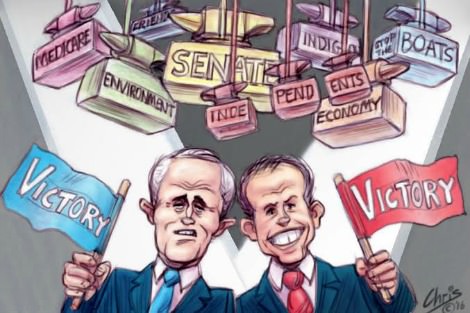
AUSTRALIA
- Andrew Hamilton
- 04 July 2016
17 Comments
After a plodding election race the stewards have called for a photo. But it looks more likely that Turnbull will be able to form a government. If so, he will need to address the interlocking challenges that we face in order to leave our children a world of possibility. The hope will be muted because both major parties promised little or nothing to address them. But we can take heart that there is certain to be an independently minded senate that can consequently strike down bad policies, and keep asking what kind of an Australia we want.
READ MORE 
-
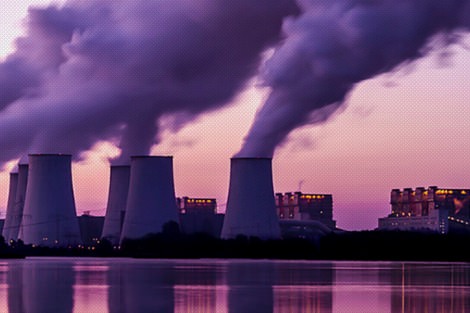
ENVIRONMENT
- Thea Ormerod
- 21 June 2016
4 Comments
An accelerating number of institutions and individuals are moving their money out of planet-heating fossil fuels and into climate solutions. The total assets guided by some form of divestment policy was $3.4 trillion at 2 December last year, 50 times more than what was up for divestment 12 months earlier. It sounds like a lot, but it's a small amount compared to the $100 trillion-plus invested in the usual way. That's our money, in banks and super funds, managed funds and insurance companies.
READ MORE 
-

ARTS AND CULTURE
- Tim Kroenert
- 17 June 2016
In one scene, as Taylor and Davis argue, the dialogue comes down and the score comes up; her voice is literally taken from her. When Davis then physically assaults her, the message is clear: his music and his violence are notches on the same spectrum. This conflation of creativity with destructiveness is a typical error of mainstream biopics about great artists who were not nice people. Yet applied in the context of spousal abuse it is not only specious but ethically dubious, even dangerous.
READ MORE 
-
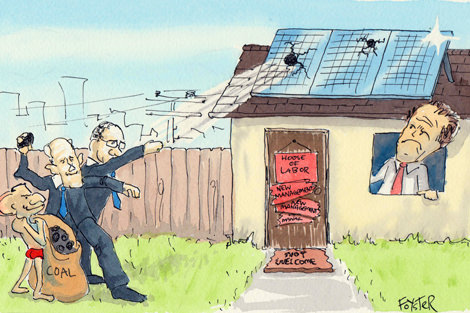
ENVIRONMENT
It was as if Australian politics had regressed four years overnight. No sooner had Labor released its new climate change plan than the Coalition was resuscitating Tony Abbott's 'carbon tax' line. The Coalition's attempt to revive the defining debate of the 2013 federal election won't work. As other commentators have noted, Labor's plan has been carefully crafted to avoid the carbon tax sledge. More importantly, external factors have changed to make a scare campaign less potent.
READ MORE 
-

AUSTRALIA
- Julie Edwards
- 30 March 2016
1 Comment
The royal commission recommends a 'blitz' on rehousing family violence victims stuck in crisis and transitional housing, as well as individualised funding packages to open up access to private rentals for people fleeing violent relationships. Important though it is, it is not enough simply to support the victims of family violence. We also need to prevent family violence from occurring. This requires a strategy for preventing family violence that involves the whole community.
READ MORE 